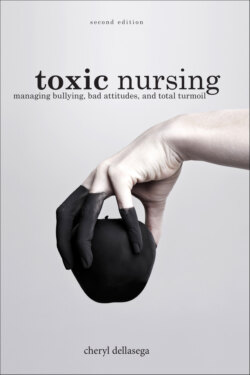Читать книгу Toxic Nursing, 2nd Ed - Cheryl Dellasega - Страница 29
На сайте Литреса книга снята с продажи.
reflections
ОглавлениеHow do you handle a mix of educational backgrounds on your unit? When there’s tension between different subgroups of nurses, are you inadvertently drawn into supporting the ones who are most like you or most like your own background?
Do you believe there is a difference between nurses with two, three, or four years of education? How do you, as a leader, adjust your style to address these differences, if at all?
2.2 The Right Kind of Experience
scenario
Coretta is eager to succeed at her first job in the OR—a position she has dreamed of since she first entered nursing school. She has gone through orientation and is now working as a “real” nurse after passing her boards.
As a student, Coretta did a review of the literature on handwashing procedures used in the OR for one of her classes and got an A from her professor. During her first month on the job, she makes some
subtle suggestions to her coworkers, based on what she learned from the research for her paper.
“Are you kidding?” responds Helen, who has worked as an OR nurse for 25 years. “Is that what they teach you in college? Wait until you have some experience under your belt, and then you can give other people advice.”
From that point on, Coretta is labeled a “know-nothing” nurse. Every time she questions why a procedure is done a certain way, her coworkers roll their eyes. At her first evaluation, her nurse manager suggests that Coretta should focus on learning from her more experienced coworkers.
Coretta emails one of her professors and tells her about the situation: “I feel like all my classes count for nothing! Maybe nursing isn’t the right profession for me.”
